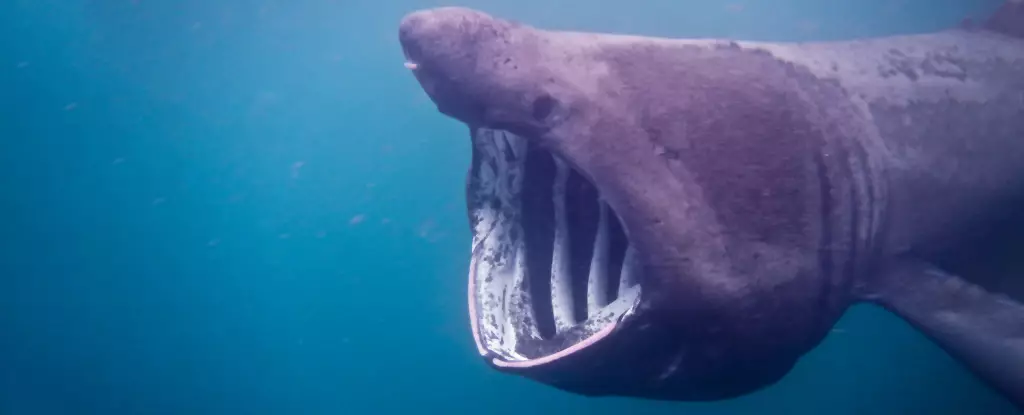The recent incident involving a basking shark being struck by a vessel shortly after being tagged has shed light on the vulnerability of marine megafauna to boat collisions. The footage captured during this traumatic event offers valuable insights into the impact of such encounters on these endangered species.
Basking sharks, like their whale shark cousins and baleen whales, are filter feeders that spend most of their time near the ocean’s surface sifting plankton from the water. This behavior, known as ‘basking’, makes them highly susceptible to boat strikes. The incident involving the tagged shark underscores just how vulnerable these animals are to collisions with vessels.
According to Oregon State University marine biologist Taylor Chapple, this is the first direct observation of a ship strike on any marine megafauna. The footage captured on the device attached to the shark provides researchers with valuable information about the immediate and long-term effects of such collisions on these animals.
The tagged basking shark, approximately 23 feet long, was feeding near the surface for six hours after being tagged. However, following the collision with the vessel, the shark immediately fled to the ocean floor and stopped feeding. This highlights the detrimental effects of boat strikes on the behavior and feeding habits of marine megafauna.
While some boat strikes may not be immediately fatal, they can have long-lasting effects on marine megafauna. The researchers point out that non-lethal impacts of collisions, such as changes in behavior and injuries, may be more common than previously thought. Additionally, the healing process of the shark’s skin means that surface damage alone may not be a reliable indicator of the prevalence of boat strikes.
Basking sharks are endangered due to historical overfishing and culling, making them particularly vulnerable to threats such as boat strikes. The establishment of Ireland’s first National Marine Park in the waters where the shark was struck is a positive step towards protecting these animals. However, more protected areas are needed throughout the basking sharks’ range to provide safe spaces for feeding and mating.
The recent incident involving a basking shark being struck by a vessel highlights the urgent need for greater awareness and education on how to mitigate boat strikes on marine megafauna. More research is needed to understand the short- and long-term impacts of these collisions on the recovery of endangered species like basking sharks. It is crucial that conservation efforts are intensified to protect these vulnerable animals from the growing threats they face in the world’s oceans.



Leave a Reply